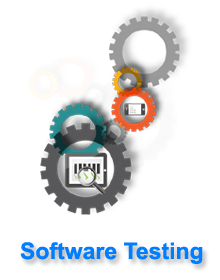Automation Testing
What is Automation Testing
Automation Testing performed with the help of automation tools. Automation testing is the process of testing the software using an automation tools to find the defects. In this process, executing the test scripts and generating the results are performed automatically by automation tools. Some most popular tools to do automation testing are HP QTP/UFT, Selenium WebDriver, etc.
Automation Testing or Test Automation is a software testing technique that performs using special automated testing software tools to execute a test case suite. On the contrary, Manual Testing is performed by a human sitting in front of a computer carefully executing the test steps.
Importaint Points about Automation Testings
- Test Automation is a software testing technique that performs using special automated testing software tools to execute a test case suite.
- Test Automation is the best way to increase the effectiveness, test coverage, and execution speed in software testing.
- Test Tool selection largely depends on the technology the Application Under Test is built on.
- Test Automation Maintenance Approach is an automation testing phase carried out to test whether the new functionalities added to the software are working fine or not.
- The right selection of automation tool, testing process, and team, are important players for automation to be successful. Manual and automation methods go hand-in-hand for successful testing.
Automated Testing Process
Following steps are followed in an Automation Process;
- Step 1) Test Tool Selection
- Step 2) Define scope of Automation
- Step 3) Planning, Design and Development
- Step 4) Test Execution
- Step 5) Maintenance
Popular Automation Testing Tools
- HP QTP(Quick Test Professional)/UFT(Unified Functional Testing)
- Selenium
- LoadRunner
- IBM Rational Functional Tester
- SilkTest
- TestComplete
- WinRunner
- WATIR

When do you prefer Automation Testing over Manual Testing?
- To handle repetitive and time-consuming tasks
- When there is a need of parallel testing
- To do non-functional testing like load, performance, stress testing
- To avoid human errors
Benefits of Automation Testing
Some Benifits of automation testing are given below;
- It is 70% faster than the manual testing
- Wider test coverage of application features
- Reliable in results
- Ensure Consistency
- Saves Time and Cost
- Improves accuracy
- Human Intervention is not required while execution
- It Increases Efficiency
- Better speed in executing tests
- Re-usable test scripts
- Test Frequently and thoroughly
- More cycle of execution can be achieved through automation
- Early time to market
Types of Automated Testing
Some Automated Testings are given below;
- Smoke Testing
- Unit Testing
- Integration Testing
- Functional Testing
- Keyword Testing
- Regression Testing
- Data Driven Testing
- Black Box Testing
Advantages of automated testing
- Automation testing is faster in execution
- It is cheaper compared to manual testing in the long run
- Automated testing is more reliable
- Automated testing is more powerful and versatile
- It is mostly used for regression testing
- It is reusable because the automation process can be recorded
- Does not require human intervention. Test scripts can be run unattended
- It helps to increase the test coverage
Disadvantages of Automated Testing
- It is recommended only for stable products
- Automation testing is expensive initially
- Most of the automation tools are expensive
- It has some limitations such as handling captcha, getting visual aspects of UI such as fonts, color, sizes etc.,
- Huge maintenance in case of repeated changes in the requirements
- Not all the tools support all kinds of testing. Such as windows, web, mobility, performance/load testing

